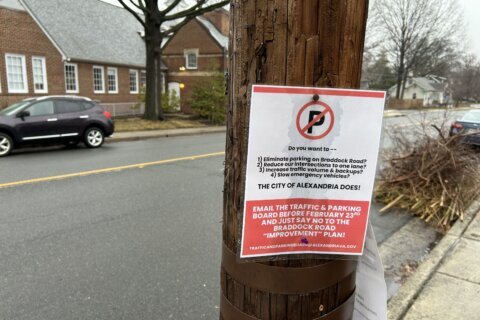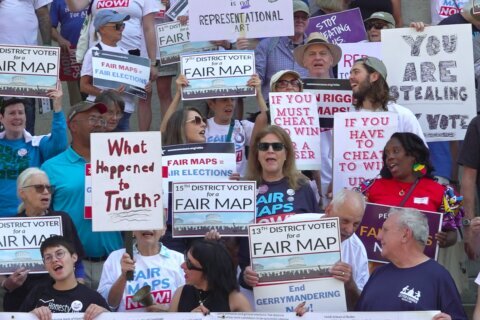WASHINGTON — Charlottesville residents later this week can ask questions about the deadly protests of Aug. 12, and the city’s response.
The city is organizing a town-hall meeting as a first step toward the city’s recovery from the protests that claimed three lives. The city is also expected to provide an update on its recovery efforts.
Another organizer of the meeting is the Department of Justice’s Community Relations Service, which works with communities to prevent and resolve racial tensions.
The meeting, scheduled for 6 p.m. Thursday at the Dr. Martin Luther King Jr. Performing Arts Center, will provide an opportunity for public comment.
“Our community has been shaken to its core,” said City Manager Maurice Jones in a news release announcing the meeting.
Heather Heyer, 32, of Charlottesville, was killed when a car plowed into demonstrators; Virginia State Troopers Jay Cullen and Berke Bates were killed when their helicopter crashed following surveillance duty over the protests. They were en route to help provide security for visiting Gov. Terry McAuliffe.
Some Charlottesville residents are critical of police for not having prevented clashes between white nationalists and counter-protesters.
“The cops pushed the two groups right together right on the street, which I didn’t quite understand. A lot of the violence and the chaos happened when the police pushed the two groups together as opposed to separating things. Didn’t make a whole lot of sense to me,” said Jonathan Crosby, 31, of Standardsville, who attended the demonstrations.
Other citizens have raised questions about the small number of arrests. At last report, eight people had been arrested. That includes James Alex Fields, who’s accused of ramming his car into protesters, killing Heyer and badly injuring others.
At an Aug. 14 news conference, Charlottesville Police Chief Al Thomas could not say whether barriers were properly in place at the intersection of the crash. Questions have also been raised about whether police were properly prepared for the anticipated violence.
Not everyone finds fault with how police handled the protests.
“You can’t keep the sides apart on a battleground. It doesn’t work that way. What they were successful in was keeping it from turning into a shooting war, which it could very easily have become,” said David Reid, 63, of Nelson County, Virginia.
As part of standard procedure, the Charlottesville Police Department, Virginia State Police and other agencies — which worked together during the weekend protests — are conducting a review of their operations, according to Charlottesville spokeswoman Miriam Dickler.








